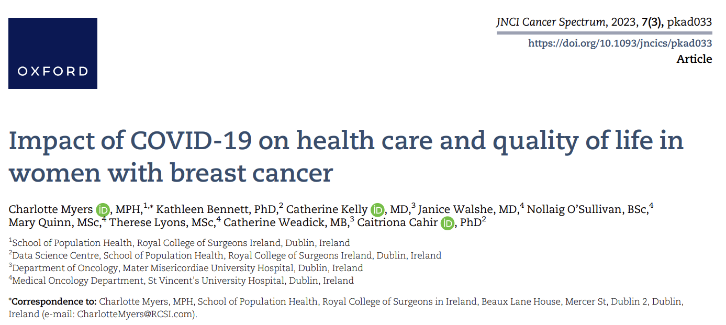Tuesday, 18 July, 2023
Publication explores the impact of COVID-19 on women with breast cancer

A recent study by members of our cluster has found that the COVID-19 pandemic has had a significant impact on women living with and beyond breast cancer. Researchers found that about one in every three women reported that the stressors of COVID-19 had a big effect on their daily lives. These women also experienced more disruptions to their breast cancer services and had lower quality of life.
However, the impact of COVID-19 was not the same for all women with breast cancer. Younger women, those living in cities, and women with other health problems reported a higher impact from COVID-19. On the other hand, retired women reported a lower impact. Women who had finished their active treatment or had been diagnosed with breast cancer a while ago also experienced more disruptions to their breast cancer services. Younger women, unemployed women, and women with multiple health conditions reported lower quality of life.
The study also found that health insurance played a role in how COVID-19 affected women's breast cancer services and quality of life. Women without private health insurance had lower quality of life compared to those with private insurance, regardless of the impact of COVID-19.
This study highlights the significant challenges faced by women with breast cancer during the COVID-19 pandemic. It emphasises the need for personalised care that considers each woman's unique circumstances, including their health conditions and socioeconomic factors. The findings also stress the importance of providing support and resources to address the psychosocial needs of women with breast cancer.
Further research is needed to better understand and improve the well-being of these women during and after the pandemic.
In summary, the study reminds us of the importance of supporting women with breast cancer during difficult times like the COVID-19 pandemic. It calls for equitable access to care and comprehensive support to address the diverse needs of these women.
To access the full article, please click (opens in a new window)here.